A Message President and CEO Shawn Coughlin
It’s hard to believe it has been only 10 days since we decided to cancel the 2020 NABH Annual Meeting. It feels more like 10 years.
On behalf of our NABH team here in Washington, thank you for all you have done to provide excellent behavioral healthcare services during one of the most difficult and stressful times in our nation’s history. Through you, our members, we have learned and shared much in one week’s time. Ultimately, we hope to use the lessons we learn during the Covid-19 pandemic to help our members—and improve behavioral healthcare in the United States.
As we all navigate the pandemic, I want to highlight some actions NABH has taken to apprise our members of federal guidance, to inform relevant federal agencies and lawmakers about our recommendations, and to share best practices with each other.
First, please visit our Covid-19 webpage, which includes our weekly recommendations to the Centers for Medicare & Medicaid Services (CMS), guidance from relevant federal agencies, and other external resources that we think you and your teams will find useful. We will update that page regularly.
We will also continue to send NABH Alerts when we have crucial and/or urgent information to share. This week’s CEO Update includes the NABH Alerts we sent earlier this week, in case you missed those.
In addition, please remember to follow us on Twitter @NABHBehavioral and on LinkedIn, where we will post important information and share what our members are doing.
Finally, please keep us informed about the challenges you’re managing and processes that are working well. You can reach us at nabh@nabh.org.
Again, our thanks and very best wishes to each of you, your teams, and your families to stay healthy and safe.
Shawn Coughlin
President and CEO
NABH Sends Covid-19 Priority Recommendations to Vice President Pence, Hill Leaders
NABH on Friday sent a letter to top federal leaders outlining the association’s priority recommendations during the Covid-19 pandemic.
Congress is considering a legislative package to address Covid-19 issues, and NABH alerted Vice President Mike Pence and congressional leaders about the major challenges that NABH members are managing during the pandemic.
Click here for the full letter.
CMS Outlines Actions for Healthcare Providers During Covid-19 National Emergency
CMS this week released a fact sheet for healthcare providers and states following President Trump’s declaration of a national emergency due to Covid-19.
You can learn more from the agency’s news release about these actions.
Federal Agencies Offer Flexibility on Telehealth and HIPAA During Covid-19 Pandemic
Agencies within the U.S. Health and Human Services Department (HHS) as well as the U.S. Drug Enforcement Administration (DEA) on Tuesday released essential guidance allowing for expanded telehealth use during the Covid-19 pandemic. Also Tuesday, HHS’ Centers for Medicare & Medicaid Services (CMS) issued important information about waivers or modifications under section 1135 of the Social Security Act during the national public emergency. Please see below for information and related links.
Meanwhile, CMS released a virtual toolkit for its partners, which includes links to the websites of other federal agencies, as well as guidance for schools, workplaces, Medicare beneficiaries, clinicians, caregivers, and others.
The agency’s announcement on increased flexibility in telehealth for Medicare beneficiaries allows Medicare payment for professional services for patients in any healthcare facility and in patients’ homes – no longer limited to rural settings and certain types of facilities. See also the FAQs on this announcement.
- CMS so also released guidance about telehealth services in the Medicaid program.
- HHS’ OIG released a policy statement and a fact sheet about telehealth cost-sharing during the Covid-19 pandemic.
- HHS Office for Civil Rights announced guidance on a limited waiver of HIPAA sanctions and penalties related to telehealth during the Covid-19 national emergency.
- DEA issued information related to telemedicine and medication assisted treatment.
In addition, CMS has approved first Section 1135 waiver in Florida allowing, among other flexibilities:
-
- Reimbursement of otherwise payable claims from providers not enrolled in Florida’s Medicaid program or Medicare if certain conditions are met;
- Waiver to allow facilities, including nursing facilities, intermediate care facilities for individuals with intellectual and developmental disabilities (ICF/IDDs), psychiatric residential treatment facilities (PRTFs) and hospitals’ NFs to be fully reimbursed for services rendered during an emergency evacuation to an unlicensed facility (where an evacuating facility continues to render services);
- Waiver for Pre-Admission Screening and Annual Resident Review (PASRR) Level I Level II Assessments for 30 days. All new admissions can be treated like exempted hospital discharges;
- See CMS guidance, for more information on section 1135 authority that allows waiver of certain Medicare, Medicaid, and Children’s Health Insurance Program (CHIP) requirements.
SAMHSA Releases 42 CFR Part 2 Guidance During Covid-19
The Substance Abuse and Mental Health Services Administration (SAMHSA) on Thursday released 42 CFR part 2 guidance clarifying patient consent requirements during the Covid-19 pandemic.
SAMHSA’s announcement acknowledges that patients may not be able to sign written consents due to social distancing and increased telehealth services during the pandemic. To ensure that substance use treatment is not interrupted, the agency’s guidance reminds providers they may determine that a “bona fide medical emergency exists” under the existing “medical emergency exception.”
Please contact Sarah Wattenberg, NABH’s director of quality and addiction services, if you have questions.
Fact of the Week
SAMHSA this week released tips on taking care of your behavioral health during the Covid-19 pandemic.
For questions or comments about this CEO Update, please contact Jessica Zigmond

